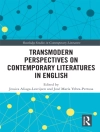This edited collection brings together an international, interdisciplinary group of scholars who together offer cutting-edge insights into the complex roles, functions, and effects of pronouns in literary texts. The book engages with a range of text-types, including poetry, drama, and prose from different periods and regions, in English and in translation. Beginning with analyses of the first-person pronoun, it moves onto studies of the subject dynamics of first- and second-person, before considering plural modes of narration and how pronoun use can help to disperse narrative perspective. The volume then debates the functional constraints of pronouns in fictional contexts and finally reflects upon the theoretical advancements presented in the collection. This innovative volume will appeal to students and scholars of linguistics, stylistics and cognitive poetics, narratology, theoretical and applied linguistics, psychology and literary criticism.
Cuprins
1. Positions and Perspectives on Pronouns in Literature: The State of the Subject; Alison Gibbons and Andrea Macrae.- 2. “I am thy father’s spirit”: The First-Person Pronoun and the Rhetoric of Identity in Hamlet; Katie Wales.- 3. “We have tomorrow bright before us like a flame”: Pronouns, Enactors, and Cross-Writing in The Dream Keeper and Other Poems; Marcello Giovanelli.- 4. Positioning the Reader in Post-Arpartheid Literature of Trauma: I and You in Zoë Wicomb’s David’s Story; Andrea Macrae.- 5. Autonarration, I, and odd address in Ben Lerner’s Autofictional Novel 10:04; Alison Gibbons.- 6. Placements and Functions of Brief Second-Person Passages in Fiction; Joshua Parker.- 7. On the Interpretive Effects of Double Perspective in Genitive Constructions; Helen de Hoop and Kim Schreurs.- 8. They-Narratives; Jan Alber.- 9. The observing we in literary representations of neglect and social alienation: Types of narrator involvement in Janice Galloway’s “Scenes from the life no. 26: The community and the senior citizen” and Jon Mc Gregor’s Even the Dogs; Catherine Emmott.- 10. Let Us Tell You Our Story: We-Narratives and its Pronominal Peculiarities; Monika Fludernik.- 11. Multi-Teller and Multi-Voiced Stories: The Poetics and Politics of Pronouns; Marina Grishakova.- 12. Pronouns in Literary Fiction as Inventive Discourse; Henrik Skov Nielsen.- 13. Postscript: Unusual Voices and Multiple Identities; Brian Richardson.-
Despre autor
Alison Gibbons is Reader in Contemporary Stylistics at Sheffield Hallam University, UK. She is the author of
Multimodality, Cognition, and Experimental Literature (2012), co-author of
Contemporary Stylistics: Language, Interpretation, Cognition (2018), and co-editor of
Mark Z. Danielewski (2011),
Routledge Companion to Experimental Literature (2012), and
Metamodernism: Historicity, Affect, and Depth after Postmodernism (2017).
Andrea Macrae is Senior Lecturer in Stylistics at Oxford Brookes University, UK. She specialises in deixis and has published work on pronouns in the
Journal of Literary Semantics (2010), the journal
Diegesis (2016), and in
The Pragmatics of Personal Pronouns (2015) and
Texts and Minds (2012).












